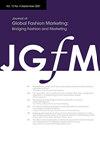Assessing how an unofficial brand partnership affects a brand image: The case of the Satan Shoes
IF 5.5
Q2 BUSINESS
引用次数: 0
Abstract
ABSTRACT This study investigates how unofficial, third-party brand partnerships detrimentally impact brand attitudes. It also addresses an underexplored research area by evaluating whether brands’ response strategies can effectively mitigate reputational damages incurred from paracrises – trivial yet publicly visible incidents alleging their involvement in socially irresponsible and unethical behaviors. This study is premised upon the Satan Shoes scandal, in which musician Lil Nas X and the art collective MSCHF altered and sold Nike footwear without obtaining the company’s authorization, resulting in public backlash on social media and a lawsuit from Nike to recall the modified sneakers. Sentiment analysis indicated that consumers expressed negative brand attitudes toward Nike in response to the scandal. Topic modeling also revealed key themes regarding the product design, moral controversies surrounding the Satan Shoes, and Nike’s lawsuit against MSCHF. Time series analysis further demonstrated that the lawsuit effectively positioned Nike as a victim, thereby disassociating the brand from the paracrisis.评估非正式品牌合作对品牌形象的影响:以撒旦鞋为例
摘要:本研究探讨了非官方的第三方品牌合作对品牌态度的不利影响。它还通过评估品牌的应对策略是否能有效地减轻由“鸡肋事件”(指指控其参与社会不负责任和不道德行为的琐碎但公开可见的事件)造成的声誉损害,解决了一个尚未开发的研究领域。这项研究以撒旦鞋丑闻为背景,在该丑闻中,音乐家Lil Nas X和艺术团体MSCHF在未经公司授权的情况下改装并销售耐克鞋,导致公众在社交媒体上强烈反对,耐克提起诉讼,要求召回改装过的运动鞋。情绪分析表明,消费者对耐克的负面品牌态度是对丑闻的回应。主题建模还揭示了产品设计的关键主题,围绕撒旦鞋的道德争议,以及耐克对MSCHF的诉讼。时间序列分析进一步表明,诉讼有效地将耐克定位为受害者,从而将品牌与危机分离开来。
本文章由计算机程序翻译,如有差异,请以英文原文为准。
求助全文
约1分钟内获得全文
求助全文
来源期刊

Journal of Global Fashion Marketing
BUSINESS-
CiteScore
6.90
自引率
31.60%
发文量
34
期刊介绍:
The Journal of Global Fashion Marketing is a quarterly journal that publishes peer-reviewed conceptual and empirical papers and business cases of original works that significantly contribute to the overall advancement of marketing theory, research, and practice in fashion, design, and culture. JGFM endeavors to be a “global bridge” connecting marketing scholars and practitioners in fashion, design, and culture throughout the world. We publish high-quality scholarly articles on marketing written by contributors representing the leading academic authors. As we state on the cover of every issue, our positioning statement, our value added to the marketing scholar readership, is truly to “Bridge Fashion and Marketing” 1. Monitor and analyze global fashion marketing trends. 2. Generate and integrate new ideas and theories related to fashion, luxury, and culture marketing theory and practice. 3. Apply new research methods and techniques in fashion, luxury, and culture marketing. 4. Explore and disseminate cutting edge fashion marketing practices. JGFM welcomes manuscripts that provide fresh, innovative insight to any topic in the field of fashion, luxury, and culture marketing. Both conceptual and empirical works are valued, so long as the manuscript addresses substantive issues in marketing.
 求助内容:
求助内容: 应助结果提醒方式:
应助结果提醒方式:


